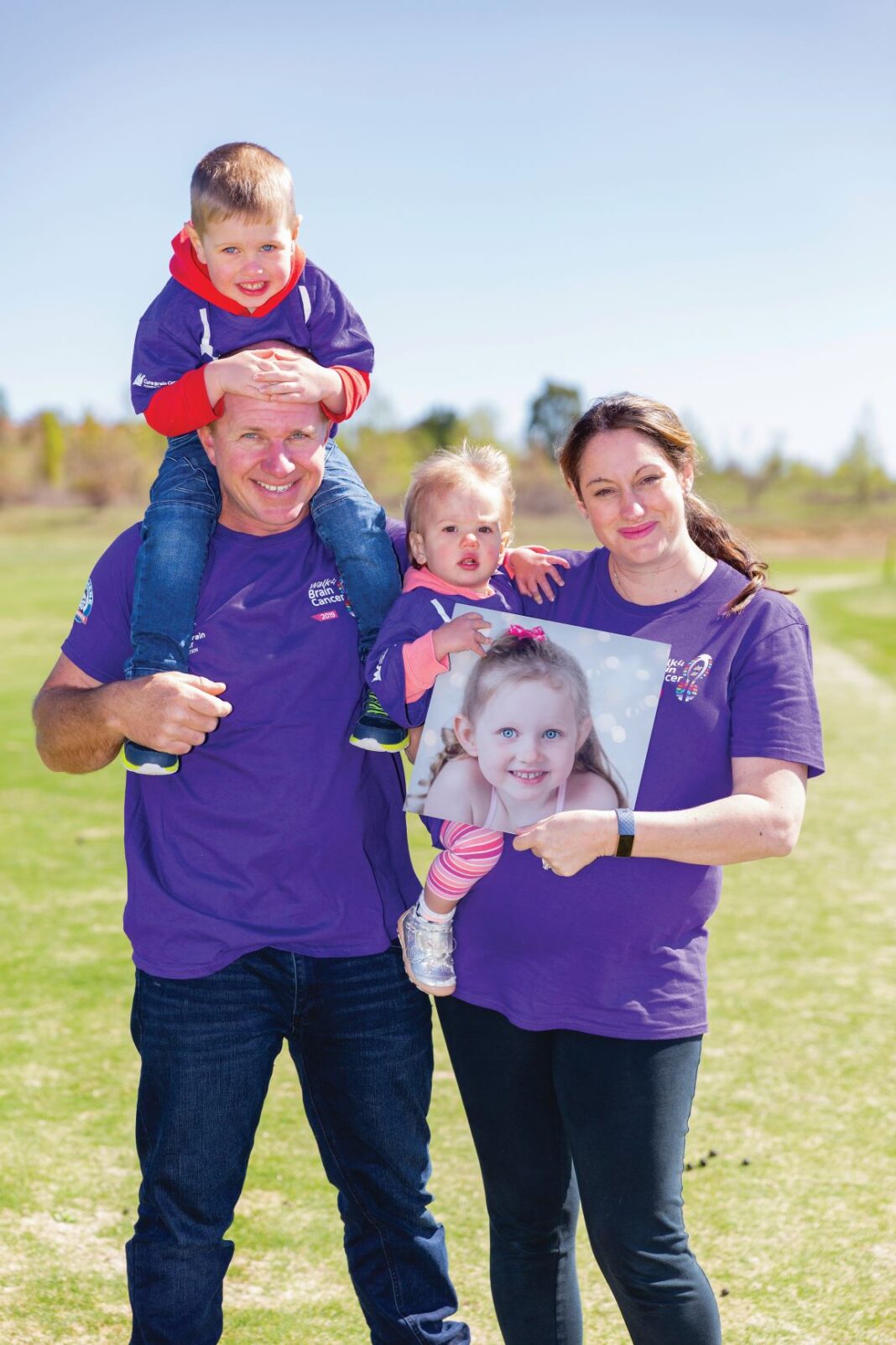Awareness = Funding = Research = Treatment.
It’s a simple equation and one that Canberra mum, Kathie Potts, is passionate about realising in a bid to change outcomes around childhood brain cancer.
Kathie’s daughter Annabelle was diagnosed with Diffuse Intrinsic Pontine Glioma (DIPG), an aggressive brain tumour, in December 2016 and passed away on 16 January this year aged five.
“I did think if she (Annabelle) died I wouldn’t be able to continue fighting,” Kathie said, but on seeing other families go through similar experiences, “something lit up inside me”.
“Ever since then I’ve been trying to get change to happen.”
Where the Potts family were told treatment could provide “nine months, if you were lucky” of time with Annabelle, parents in similar circumstances are now given a 9-12 month timeline.
“They talk about this tumour in months,” Kathie said. “There is a less than 1% survival rate over five years.”
Annabelle went through 27 rounds of adult radiation, one round per day for five days per week, in a bid to “help shrink the tumour to help us make memories”.
But Kathie said she and husband Adam weren’t keen “to just make memories but to live life” and looked into what options were available to help Annabelle.
The family eventually ended up spending time in Mexico for treatment, although Kathie said “I didn’t want to go to Mexico to get some form of hope” but there was little else available in Australia.
“The whole time Annabelle was sick I was fighting to get treatment in Australia,” Kathie said. “You need to be able to try more experimental drugs and combinations of drugs, but with the red tape in Australia, it’s not going to happen unless there’s change.”
However, change is happening, albeit slowly. Kathie acknowledged the approach of Zero Childhood Cancer, which takes a tumour sample and tests to see which drugs are most likely to be effective to develop a personalised treatment plan, as well as the increase in funding for research.
The Federal Government announced in September an additional $7 million in research funding, to help support children and their families living with childhood brain cancer. This is in addition to the $2 million in National Health and Medical Research Council funding recently announced for brain cancer research projects focused on treating DIPG.
The Potts family are also aiming to raise funds and awareness through their involvement in Walk4BrainCancer. The whole family, including children William and Juliette, will be taking part in the event on Sunday 10 November with their team, Love for Annabelle. For Kathie it was an easy decision to become involved.
“The main reason we continue raising awareness is because Annabelle was such a selfless little girl and would want us to continue fighting for all the other kids fighting brain cancer,” she said.
Organisers hope that the Canberra Walk4BrainCancer event will raise more than $50,000. Funds raised at Walk4BrainCancer are used by Cure Brain Cancer Foundation to fund world-class research, impactful advocacy and widespread awareness.
Walk4BrainCancer is on Sunday 10 November at Stromlo Forest Park. For more information or to register, visit walk4braincancer.com.au/walks/canberra/; if you would like to donate to the Potts family’s efforts \, visit my.walk4braincancer.com.au/canberra-2019/love-for-annabelle
For more:



